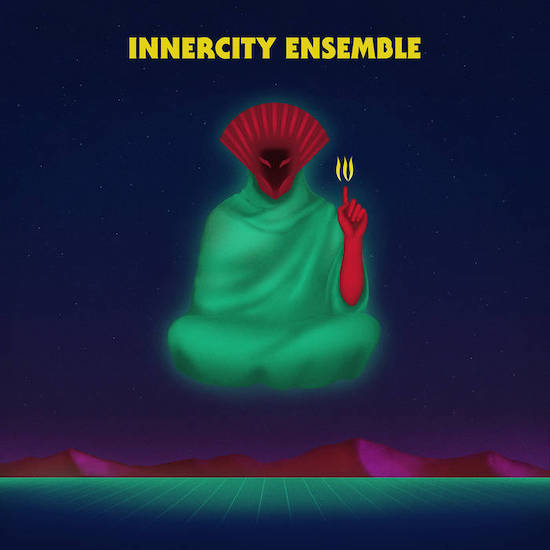The first thing that struck me about IV is how cohesive it is, compared to the Polish jazz super group’s previous albums. This isn’t to say that Katahdin, II and III were sloppy – far from it. But IV is crafted from a richer pallet. One of the reasons for this change in texture is Jakub Ziolek’s decision to start singing, as he does on three of the tracks here. Originally the band was conceived as an instrumental vehicle where improvisation was the main objective, but over the year’s Ziolek had an urge to try new things, so he wrote some lyrics. “What I enjoy most in music are nice songs," Ziolek recently said. And IV is full of nice songs.
Opening track ‘reKonstrukt I’ has a glorious drone motif that just lingers a little bit longer than it should, but underpins the whole song. At times it feels like a gently lapping stream, constantly moving but with a serenity that is just captivating. It shows that Innercity Ensemble are just as capable of making wonky, challenging fusion as they are tranquil mood pieces. ‘‘Massif in the Sand’ is business as usual. That main riff isn’t just the catchiest riff on the album, but on anything they’ve released. After it kicks in the track, and album, are elevated to another level. As the layers of riffs, synths and a great big honking drone get built up, hypnotic vibes exude from the speakers, gently pulling you into their off-kilter world view.
‘The Great Meadows of Kuyavia’ is the standout track on the album and fits neatly into Ziolek’s love of nice songs. Everything about ‘The Great Meadows of Kuyavia’ is delightful. The motifs are pleasant and not too in your face. Yes, the level of playing is incredible, but Innercity Ensemble know when to rein it in. Vocally, Ziolek delivers his best performance on the album. There is a delicate understatement to it that expresses his understanding of what the song needs, rather than belting it out because he can.
Fundamentally this is what separates IV from Innercity Ensemble’s previous releases. Here the band is all pulling for the songs, rather than for themselves. This is the sound of a band understanding what is needed – and what isn’t – to create an album that feels like a career high. Whether or not you are familiar with their back catalogue or not, IV is an album to play for sheer enjoyment, rather than to try and understand what every note means.


